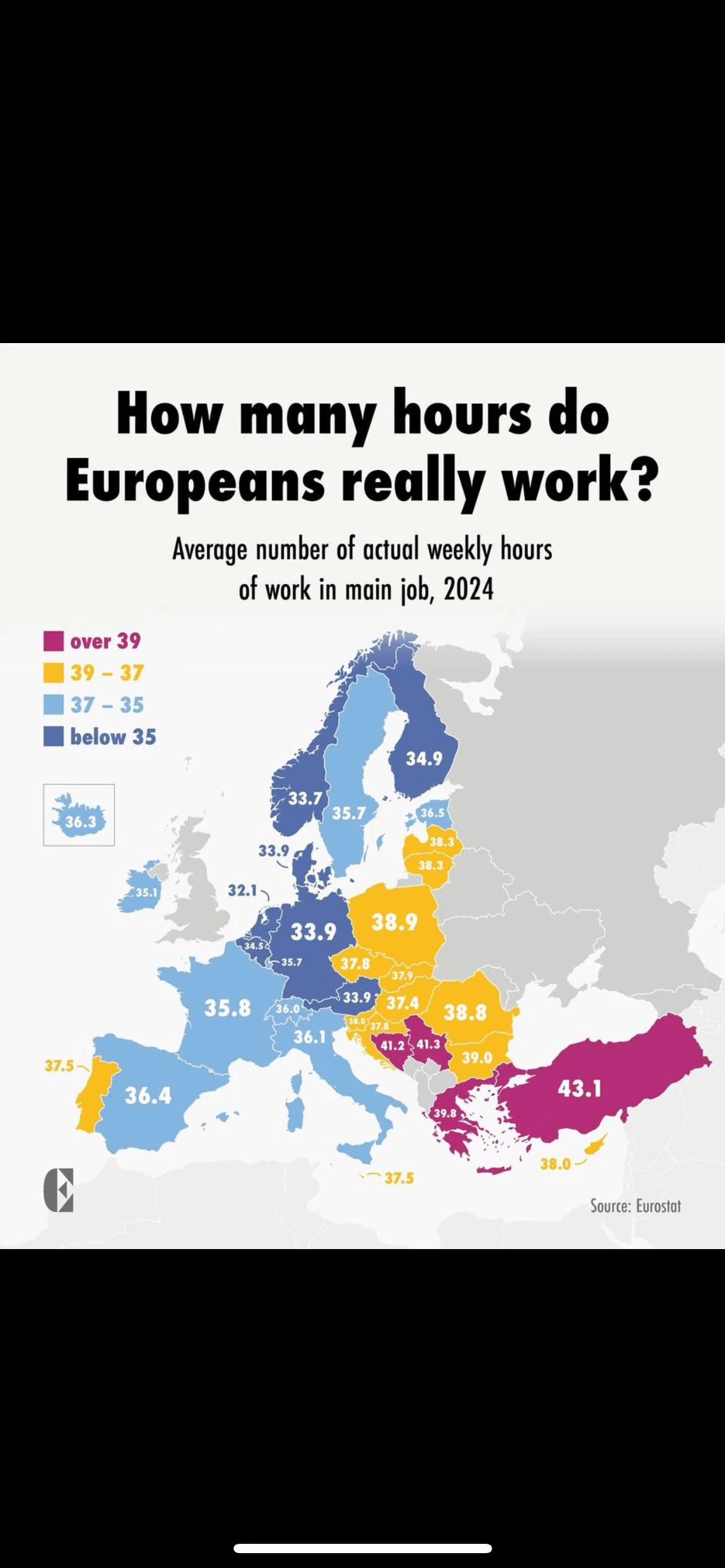I didn't remember Greeks were accused of working too little hours. I thought the situation was blamed on corruption, tax evasion and ineptitude of the country's leaders.
YUROP
A laid back community for good news, pictures and general discussions among people living in Europe.
Topics that should not be discussed here:
- European news: [email protected]
- European politics: [email protected]
- Ukraine war: [email protected]
Other European communities
Other casual communities:
Language communities
Cities
Countries
- [email protected]
- [email protected]
- [email protected]
- [email protected]
- [email protected]
- https://feddit.dk/
- [email protected] / [email protected]
- [email protected]
- https://lemmy.eus/
- [email protected]
- [email protected]
- https://foros.fediverso.gal/
- [email protected]
- [email protected]
- Italy: [email protected]
- [email protected]
- [email protected]
- [email protected]
- [email protected]
- Poland: [email protected]
- [email protected]
- [email protected]
- [email protected]
- [email protected]
- [email protected]
- [email protected]
- [email protected]
English and Russians don't even have jobs! /s
OP doesn't seem to understand how these data are compiled.
In most tourism-related jobs (e.g. restaurants), people don't count their hours.
This completely distorts the data for countries like France.
In Scandinavian countries and Germany, is common for 1 parent to work 50%. They also earn 50% (actually even less). This also distorts the data for these countries.
Finally, many of these states are about contractual hours. Not actual. If you work overtime, this is not accounted for. If you don't declare employees, is the same. And if you don't work, while being at work, i it's still counted as work.
Final word about the critics of Spain, Italy, Portugal and Greece. Most of these people criticized the fact that they take long breaks and "waste time" while at work (=do chitchat).
They usually don't realize, that while Germans commonly leave work around 5pm, people in other countries stay until 6, 7 or even 8pm.
For the chitchat part, it's mainly that they don't value it.
Didn't get too offended by idiots ;-)
This graphic is not correct at least concerning Switzerland where a full time work week is 41 hours.
Am Greek. Working 44 hours on average (40 during winter, 48 during the summer).
Many in the tourism industry, which brings in 13% of Greece's GDP, work for over 50 hours on average for 6 months, then they work mostly uninsured labor jobs in the winter, so that map only gives you half the truth.
Yeah, that 'hours of work in main' job really does something here.
I mean the guy working three part time jobs would clock in maybe 20ish hours on the main job but maybe 60 overall.
